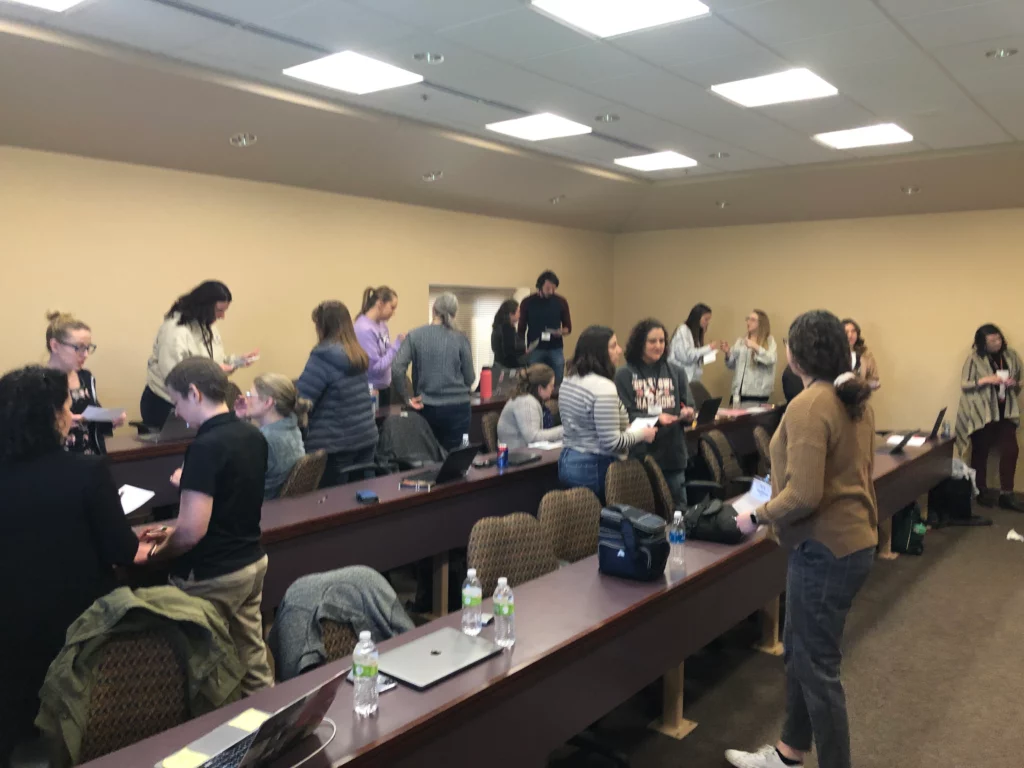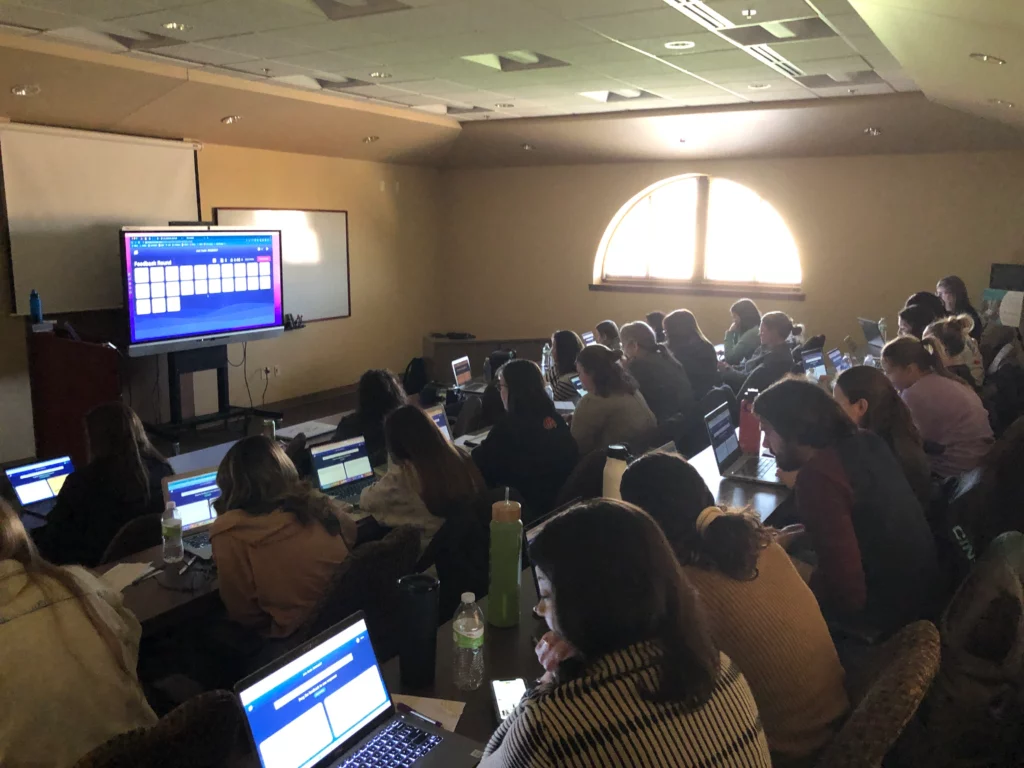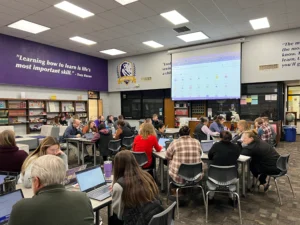Short Answer co-founder Adam Sparks had the privilege of leading an interactive session titled Peer Feedback, Wine Tasting, and More Effective Formative Assessment at the 2023 Mid-American Association for Computers in Education (MACE) spring conference in Manhattan, Kansas. In this case study, we share highlights, feedback, and implications for school districts interested in leveraging similar strategies to improve formative assessment and writing pedagogy in their district. To find out more about hosting similar PD in your district, reach out here.
An Introduction to Comparative Judgment
The session focused on the principle of comparative judgment (CJ). CJ is an assessment strategy where items or performance are compared to one another. It’s not unlike a wine-tasting event where participants assess each wine in relation to others. Judging each wine in isolation, based on an internalized standard, is challenging. But if you taste one wine after another, you can easily say which one you prefer and why. You’re making a judgment based on a comparison, which our minds are able to do relatively accurately.
The same principle, when applied in an educational context, can be powerful. When used to scaffold the peer feedback process, research shows that comparative judgment can empower students to provide feedback that is on par with that of an expert. Also, when tasked with comparing and judging their peers’ work, students have to analyze, evaluate, and synthesize information to make their judgments. This process helps students to better understand the assessment criteria and how they can improve their own work. Peer assessments like these can also foster a sense of shared responsibility for learning within the classroom community that can be an incredibly powerful tool to build developmental relationships in the classroom and increase student engagement.
"This was by far the best session I went to. Not only was the concept of comparative judgment helpful, the website was phenomenal. I'm going to use this right away."
- 5th Grade teacher, Manhattan Kansas

Putting Theory Into Practice
Using Google tools like Google Docs, Google Forms, and Google Sheets alongside Short Answer, attendees engaged in three formative assessment activities. They discussed the research guiding each and brainstormed how they could apply these activities in their respective curricula. Feedback was overwhelmingly positive. :
- “Best presentation I attended at MACE. Can’t wait to use Short Answer in my classroom.”
- “This was by far the best session I went to. Not only was the concept of comparative judgment helpful, but his website was also phenomenal. I’m going to use this right away with my 5th graders.”
- “This should be a keynote next year. Really cool technology that the presenter created himself!”
- “OMG, Short Answer is life-changing. Can’t wait to use this and watch it grow!”
- “Not only was Short Answer a fabulous tool, it is clearly pedagogically sound. I can’t wait to use this. We would LOVE IT if you could come to our district, I’ll be in touch.”
This enthusiasm reflects the impact that the Short Answer approach can have on teaching and learning practices. As we continue our mission to enhance K12 formative assessment and writing, the MACE 2023 session serves as a case study of powerful professional development. Moving forward, we are eager to collaborate with educators who are ready to elevate formative assessment and writing practices in their district. Please reach out here if you’d like to find out more about bringing PD sessions like this to your district.



